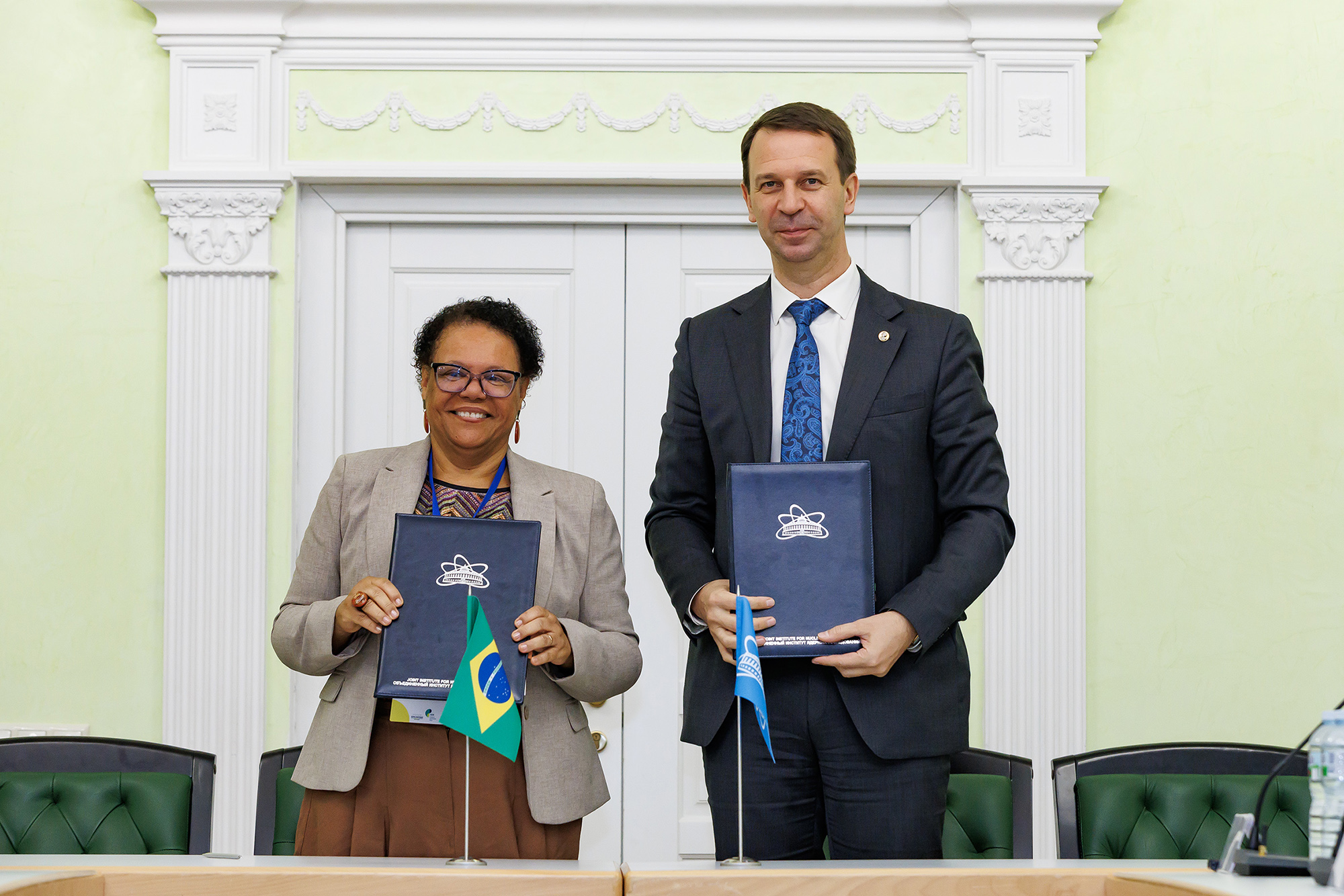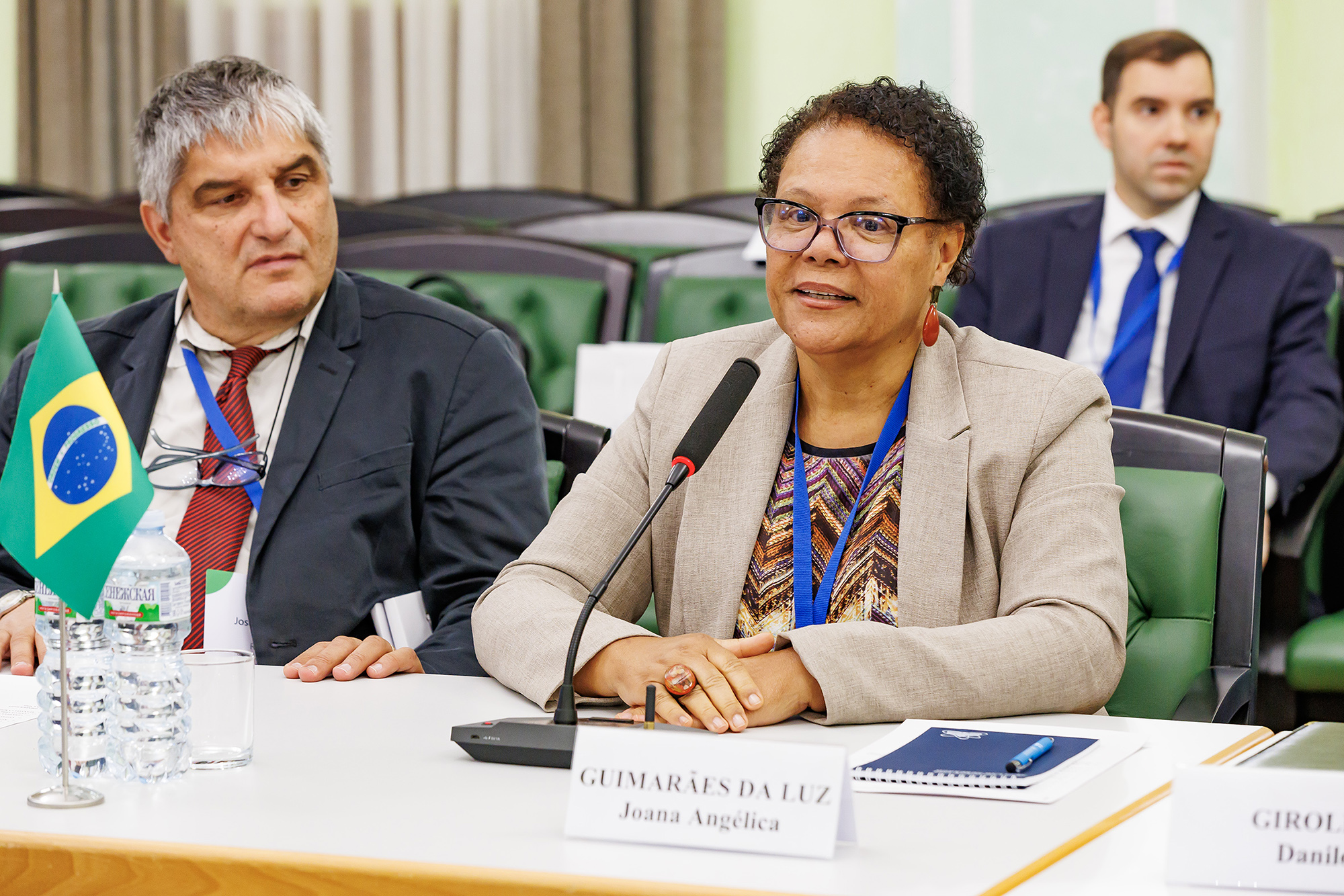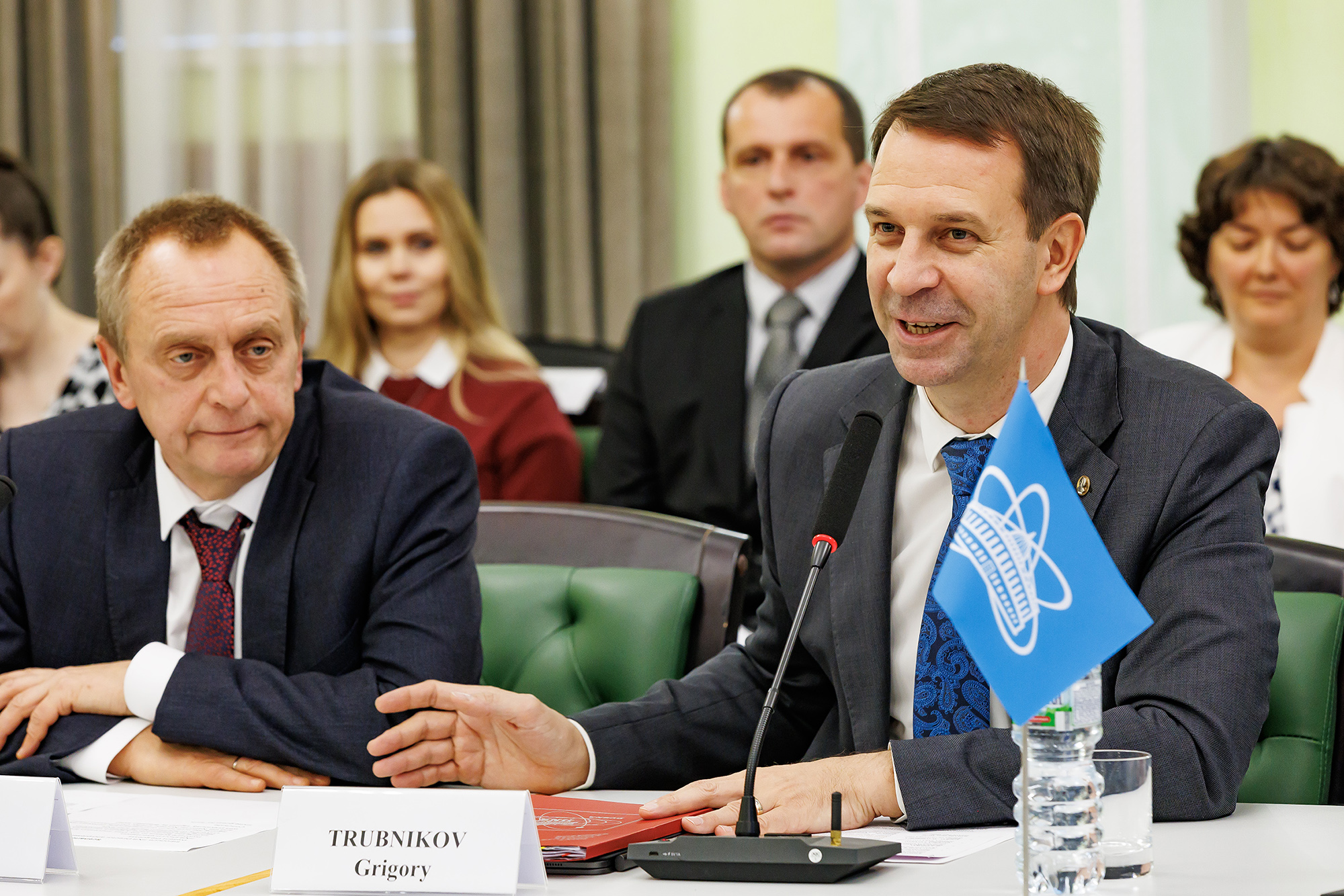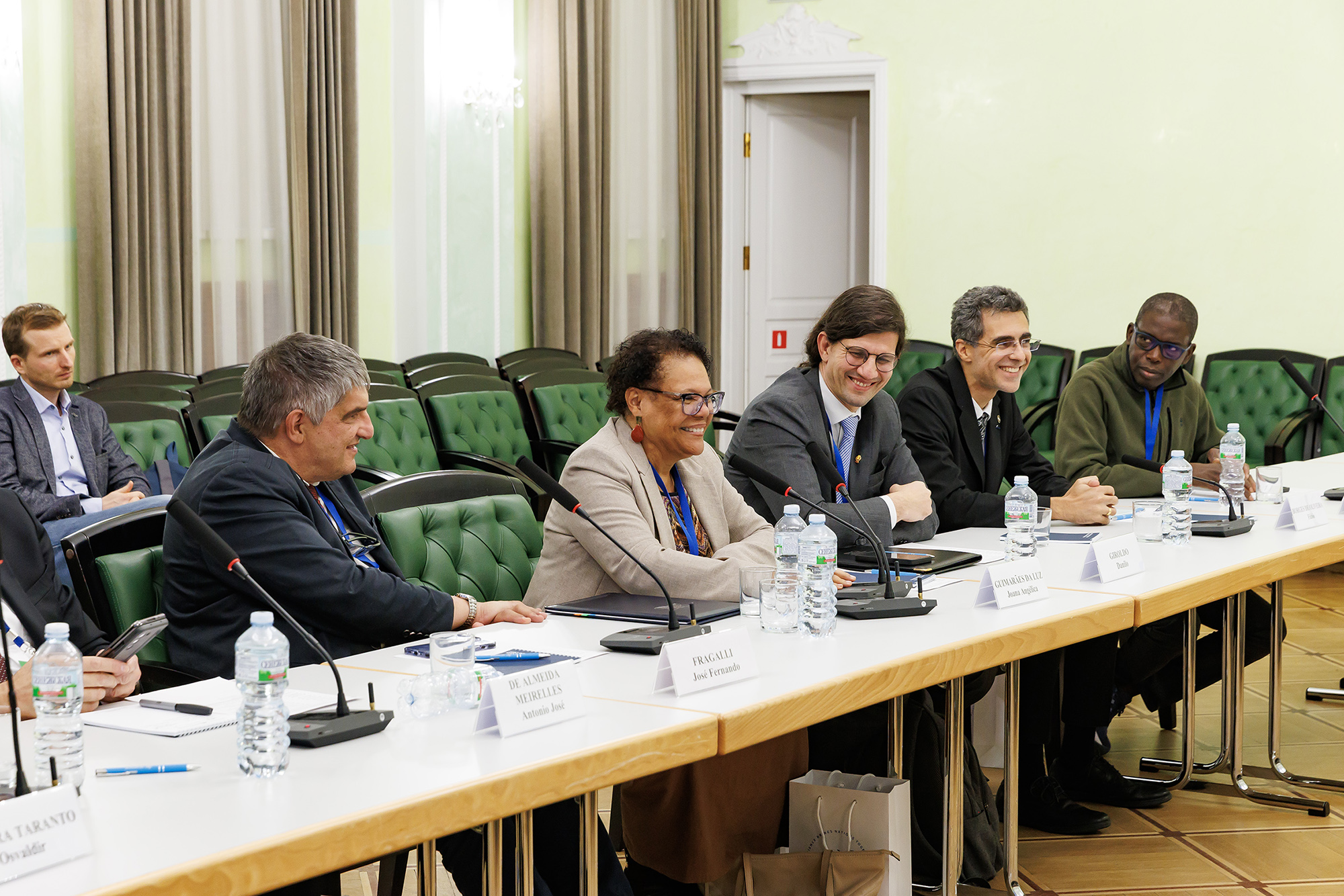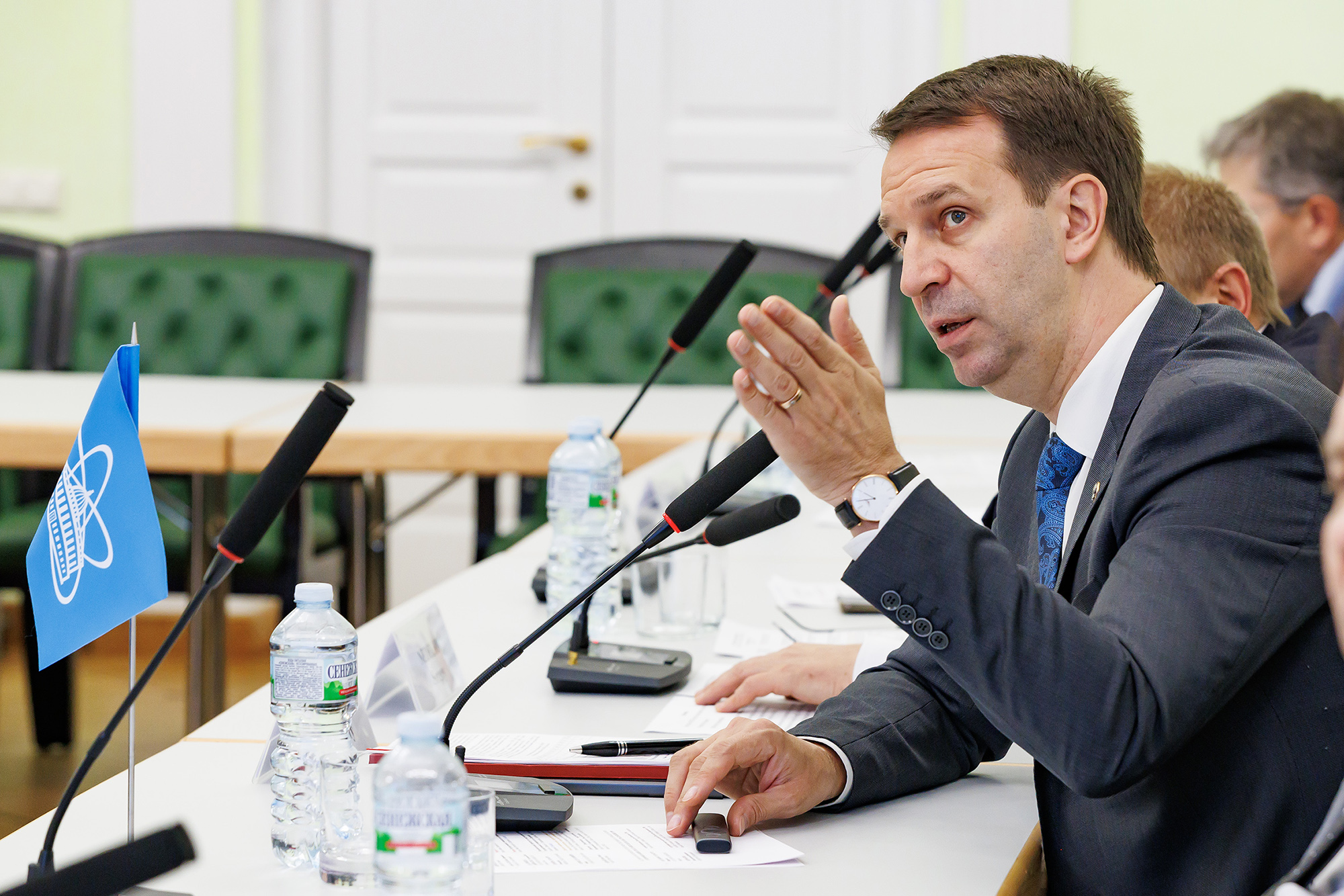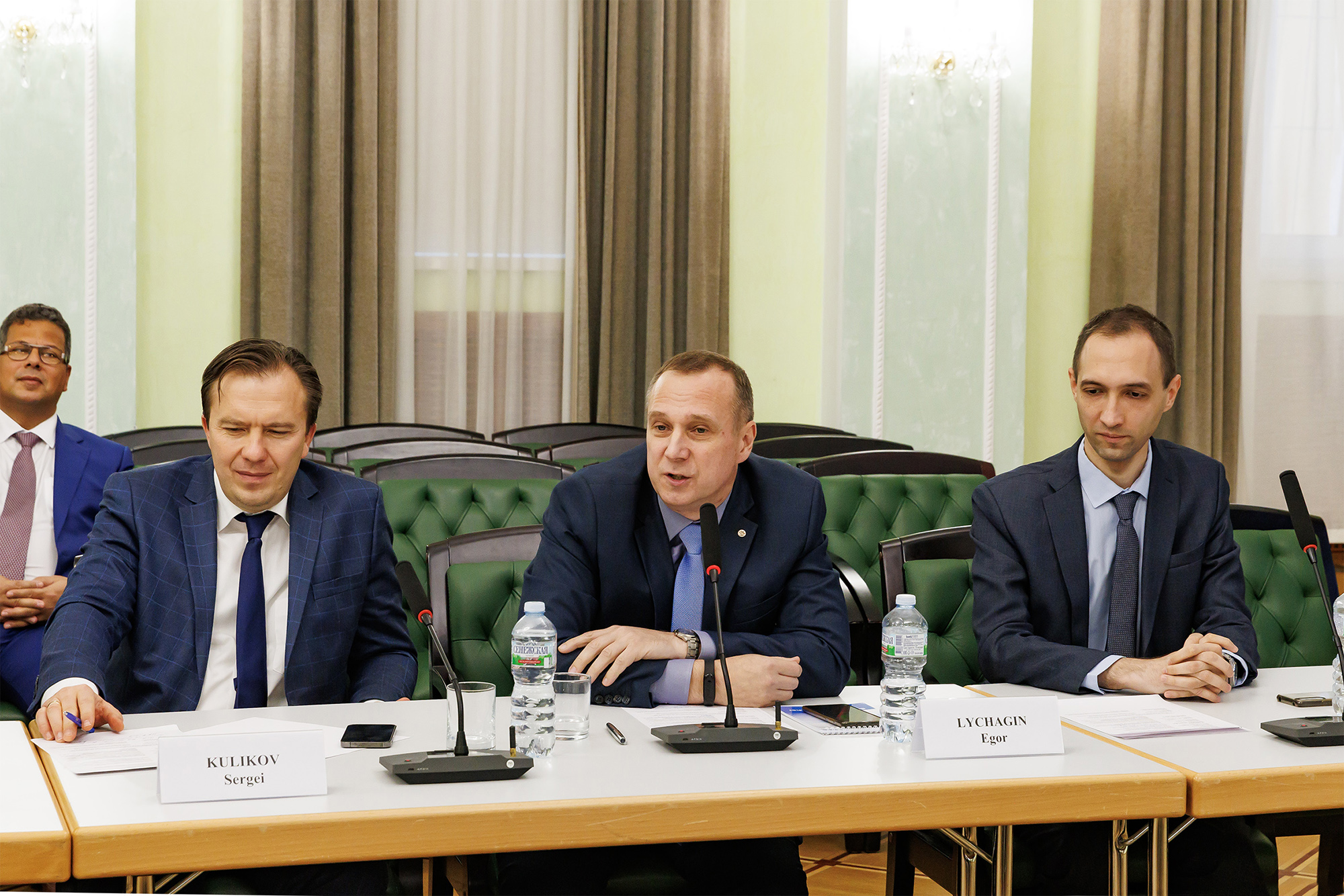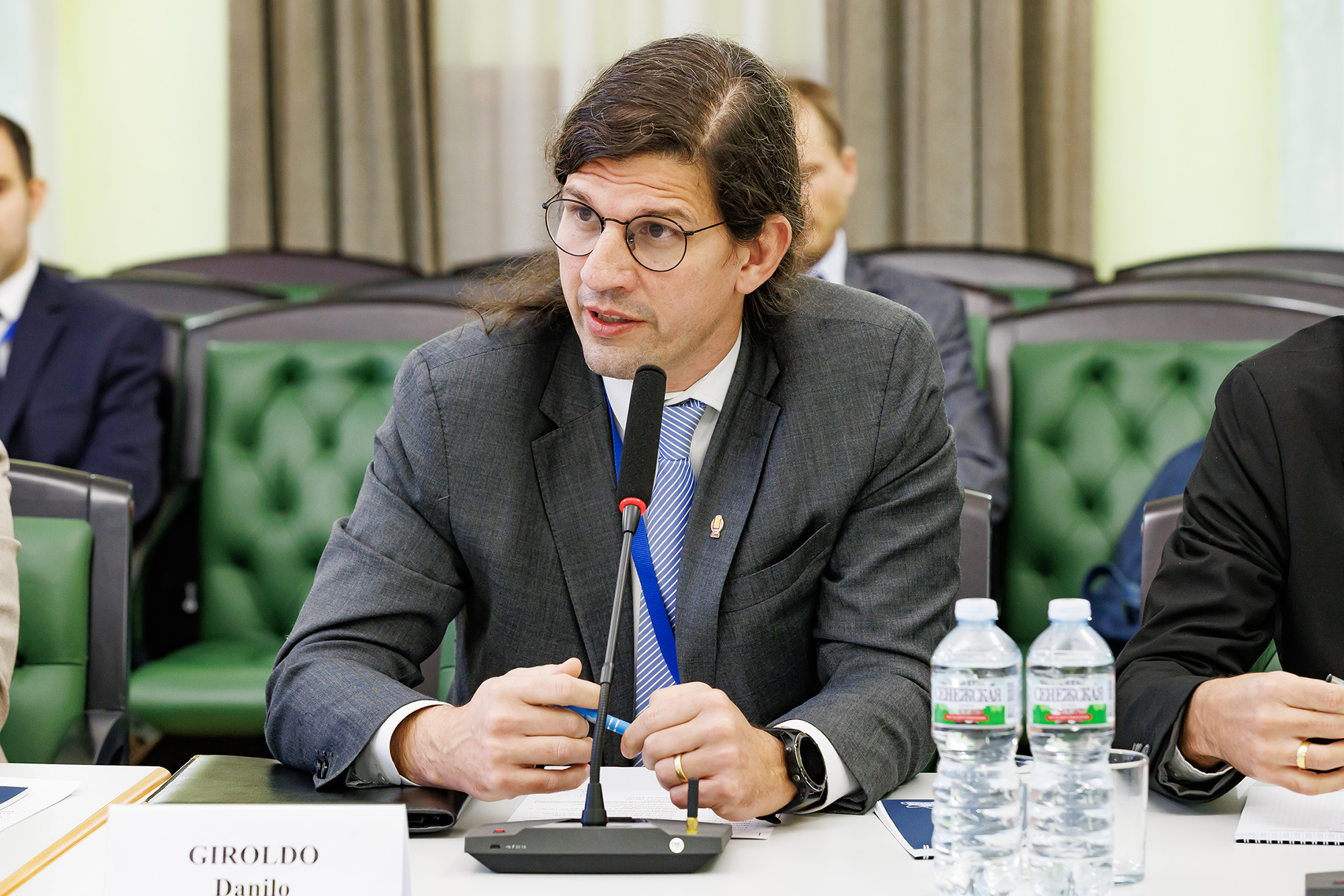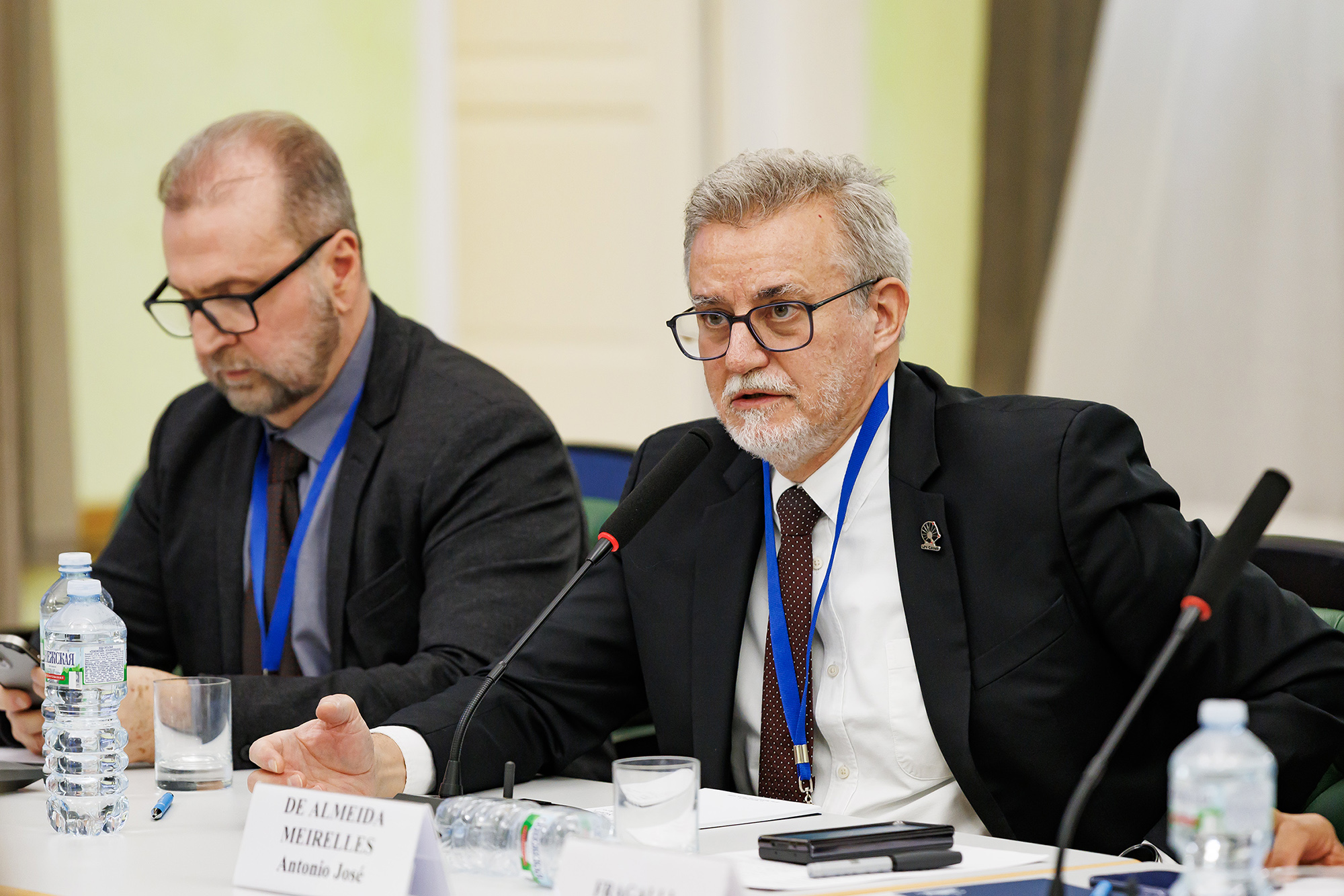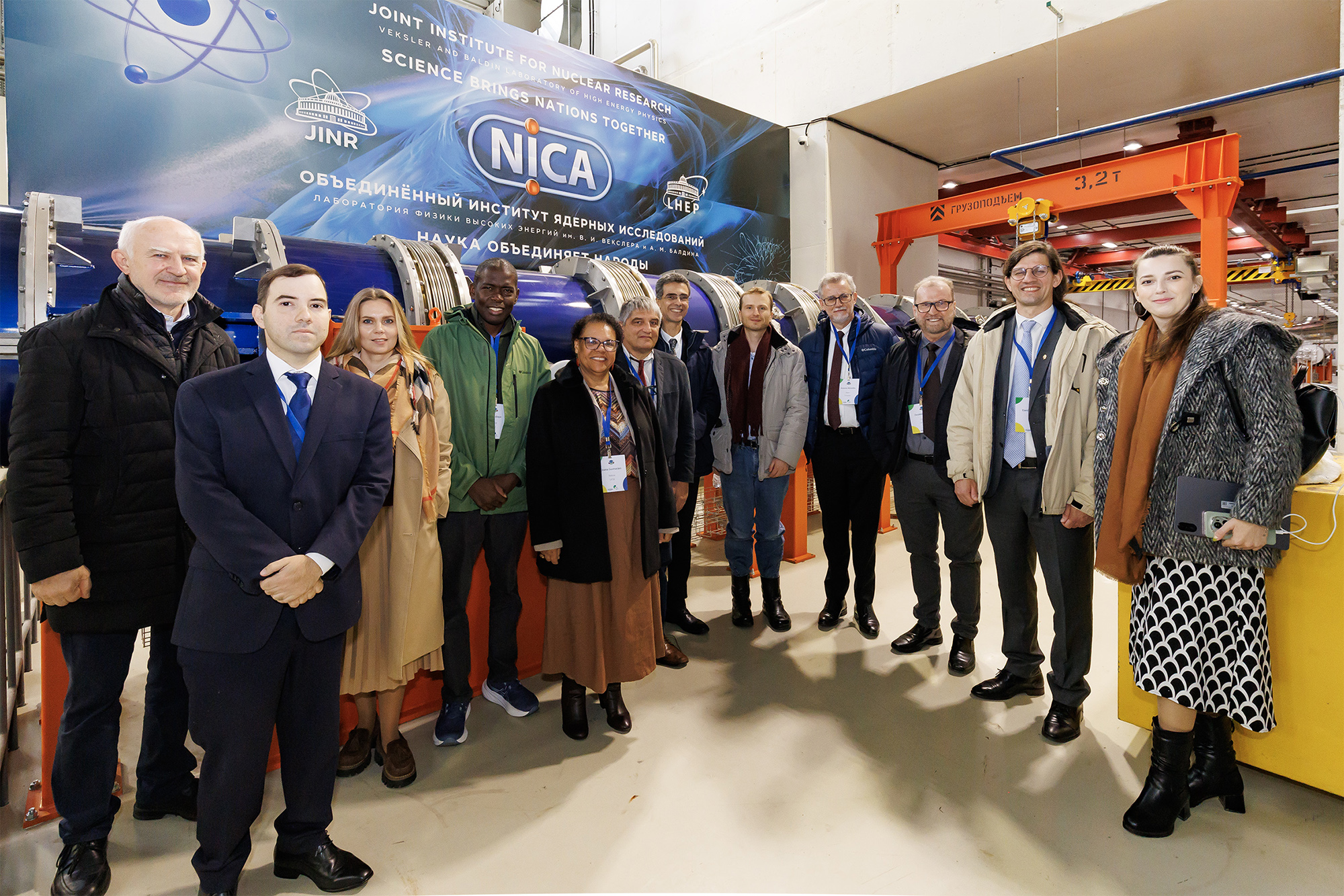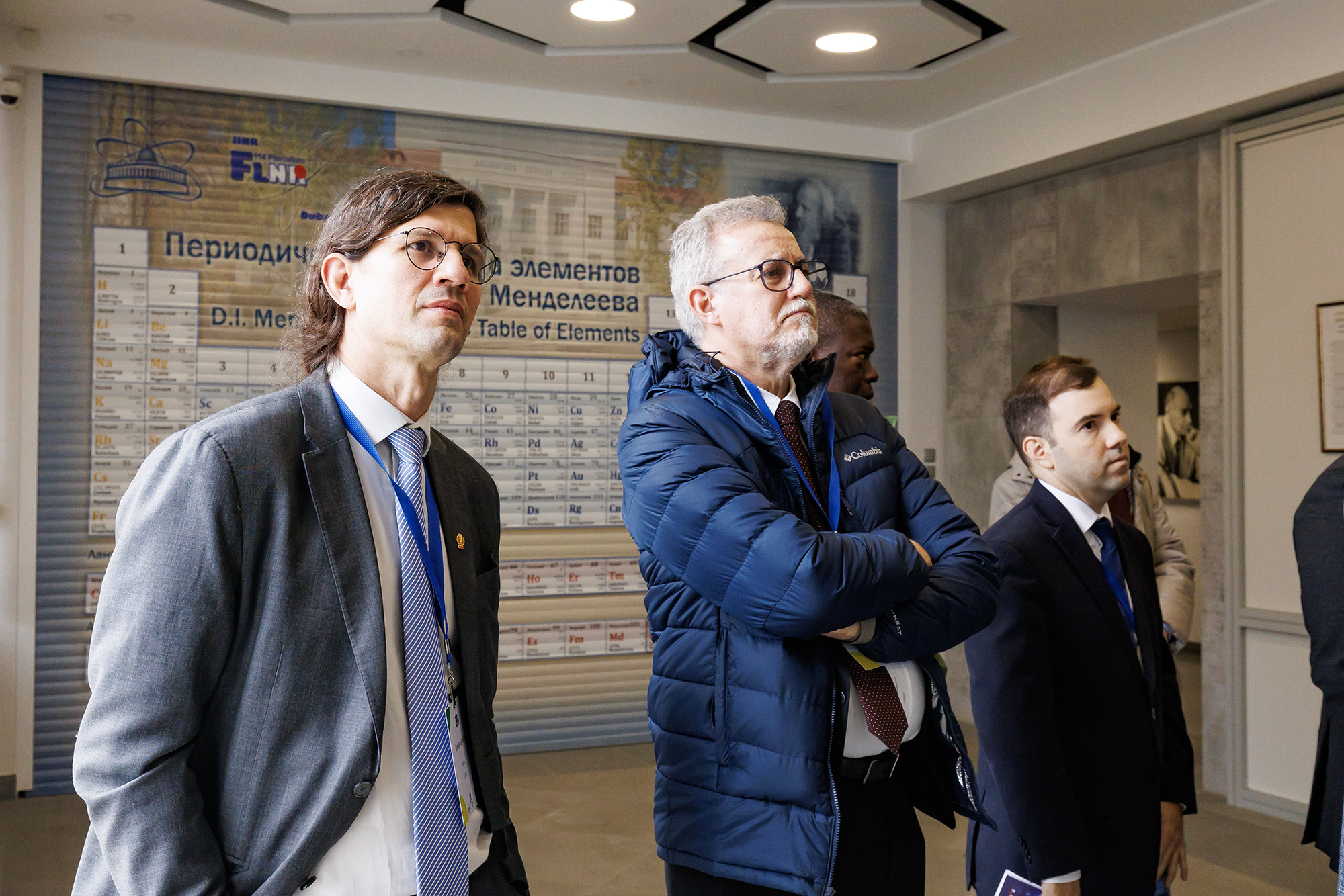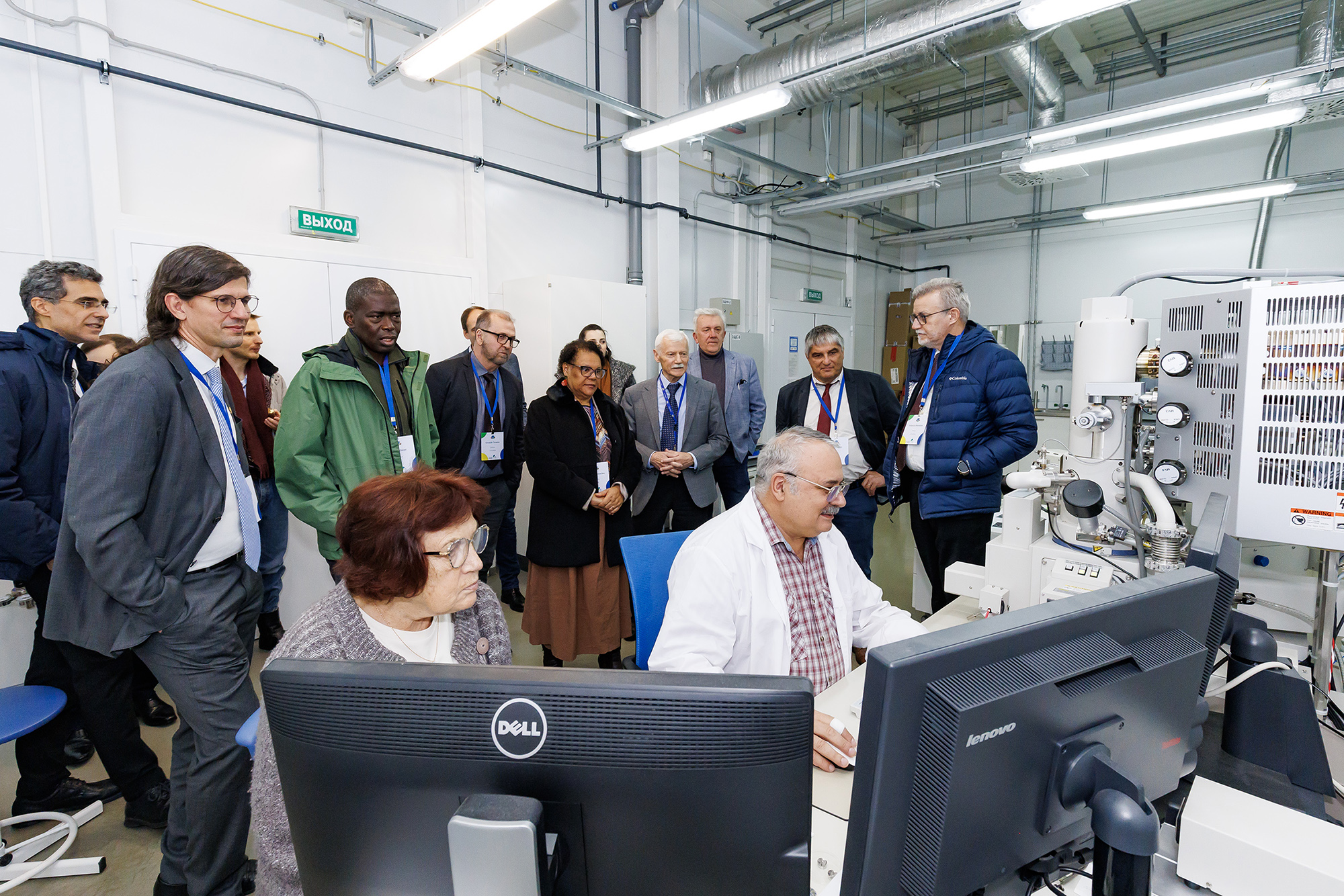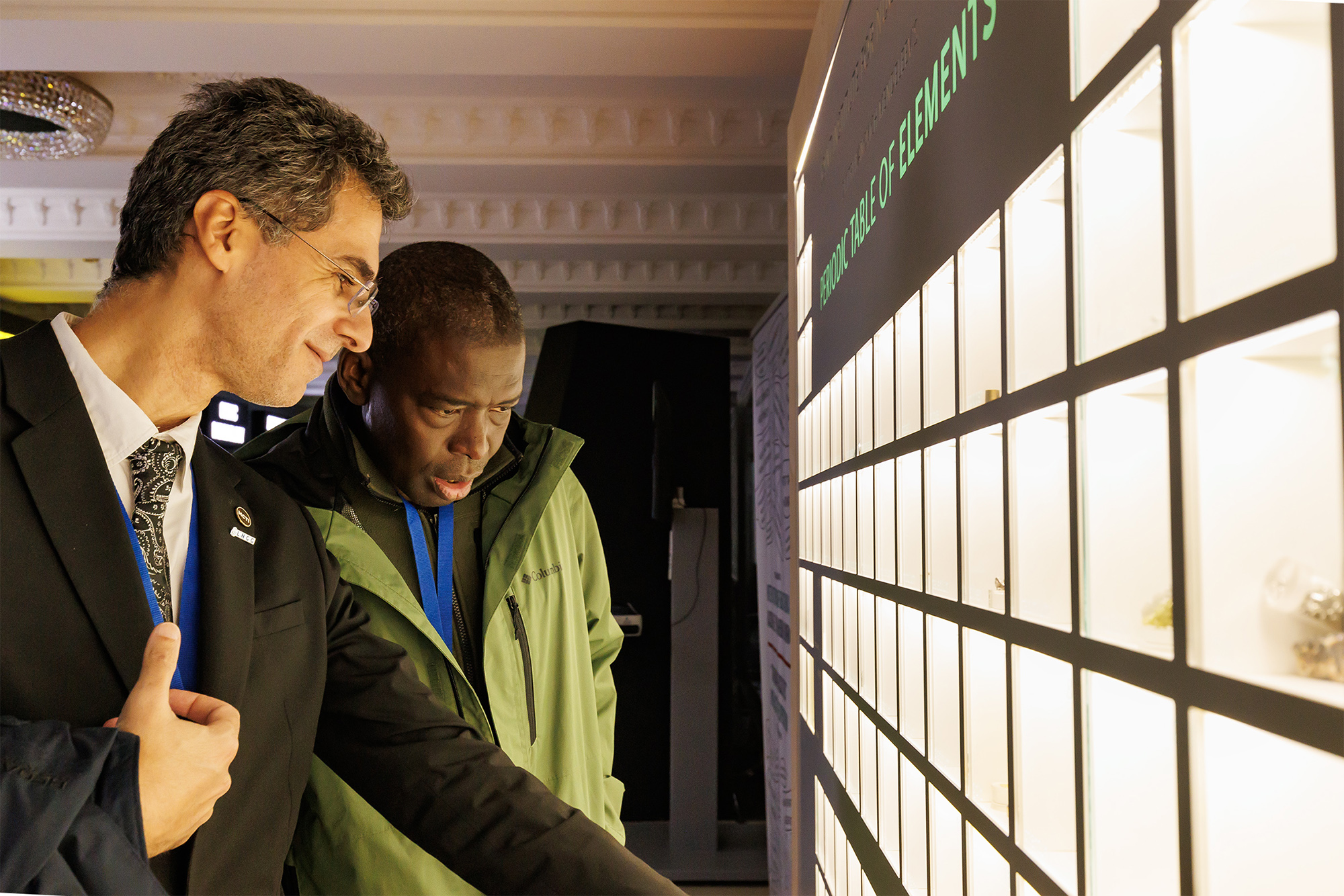JINR – Brazil: new cooperation agreements signed with CNEN and University of South Bahia
Media, 17 October 2024
On 15 October, two new cooperation agreements were signed at the Joint Institute for Nuclear Research with the National Nuclear Energy Commission of Brazil (CNEN) and the Federal University of Southern Bahia (UFSB). During their visit to JINR, representatives of the higher educational institutions of the Federative Republic of Brazil got acquainted with the scientific infrastructure of the Institute and discussed cooperation prospects, including joint research and experience exchange.
As part of their introduction to the scientific infrastructure of the Joint Institute, the guests from Latin America visited the sites of the NICA Accelerator Complex at the Laboratory of High Energy Physics, the Centre for Applied Physics of the Laboratory of Nuclear Reactions, and the JINR Main Facilities interactive exhibition at the Mir Cultural Centre.
“The Joint Institute for Nuclear Research is a place of international science, – JINR Director Grigory Trubnikov said during his welcome speech. – I am happy that in recent years we have continued to develop such serious scientific partnership with Brazilian research centres and universities. I am convinced that our research capabilities and the scientific interests of our Brazilian colleagues will be able to complement each other perfectly, opening up excellent prospects for working on joint projects.”
Grigory Trubnikov spoke in detail about the organization of Institute’s activities, the main directions of research conducted in the laboratories, and the modern JINR scientific infrastructure. Special focus was placed on implementing training programmes for young specialists to participate in international research projects. The Joint Institute has extensive experience in holding scientific schools, student scientific and educational programmes (START and INTEREST), internships, and further education courses. Each year, more than 800 students and young professionals from different countries come to Dubna to train at JINR.
As part of the round table, a cooperation agreement was signed between the Joint Institute and the Federal University of Southern Bahia. It will open up new opportunities for joint research and development of scientific and educational programmes to prepare students and young professionals to work in nuclear physics and related fields.
“The employees of our university are looking forward to working together with the Joint Institute for Nuclear Research, – UFSB Rector Joana Angelica Guimaraes Da Luz said. – Of course, we have to talk about the details of future cooperation, identify areas and specific projects. We have a lot of tasks ahead of us, and I hope that thanks to this agreement, we will be able to find solutions for each of them.”
In addition, the Director of the Joint Institute signed a Memorandum of Understanding between JINR and the National Nuclear Energy Commission (CNEN) of Brazil. The document highlights the serious intentions of the parties to advance scientific cooperation in research reactor and cold neutron source development, materials science applied research on reactors using various methods, life sciences, and ecology. During an official visit of the Joint Institute delegation to Brazil in May 2024, JINR and CNEN reached a preliminary agreement to prepare an official document confirming their intentions to develop scientific cooperation.
The delegation consisted of seven representatives from the Federal University of Rio de Janeiro (UFRJ), the State University of Campinas (Unicamp), Santa Catarina State University (UDESC), the Federal University of Rio Grande do Sul (UFRGS), the Federal University of Southern Bahia, and the National Laboratory of Scientific Computation (LNCC).
The JINR side included Vice-Director Latchesar Kostov, Chief Scientific Secretary Sergey Nedelko, and laboratory directors Sergey Sidorchuk (FLNR), Evgeny Yakushev (DLNP), Sergei Shmatov (MLIT), Aleksander Bugay (LRB), and Egor Lychagin (FLNP). They presented the wide range of research carried out in the Institute departments and talked about the current cooperation opportunities. The Brazilian delegation took great interest in this information and showed willingness to consider options for collaborating with JINR scientists.
At the end of the round table, JINR Director Grigory Trubnikov expressed hope that the cooperation between the Joint Institute and Brazilian scientific and educational organizations will further strengthen. He noted that it is important for the governments of Russia and Brazil to promote science and education. Grigory Trubnikov highlighted that this will not only advance the partnership, but also increase Brazil’s status in JINR, thus contributing to the development of academic mobility, providing both sides with freer access to each other’s research tools and resources, and creating favourable conditions for joint educational events and internships for students from JINR Member States and Brazil.
